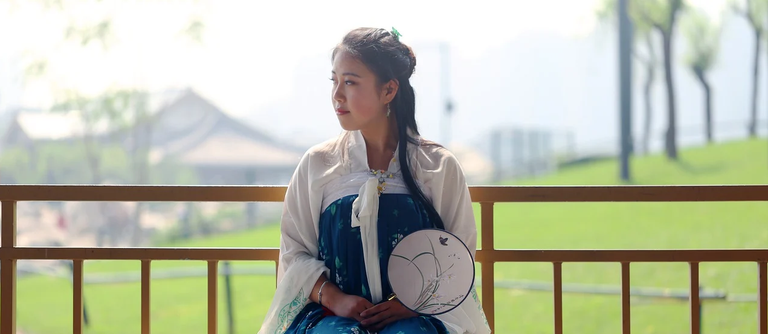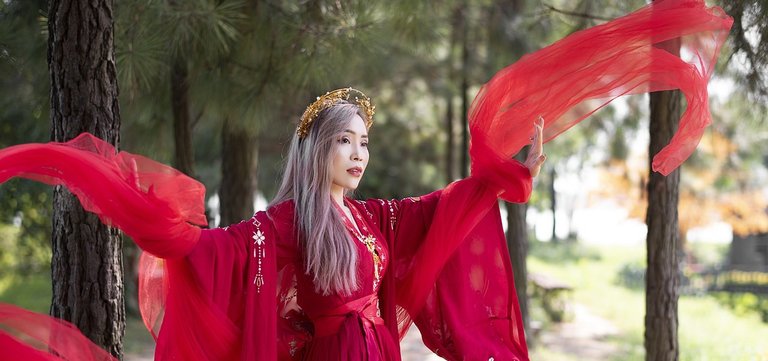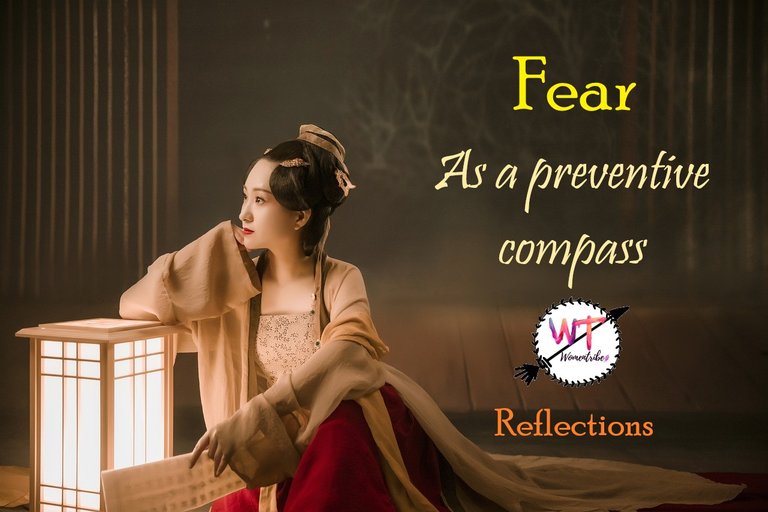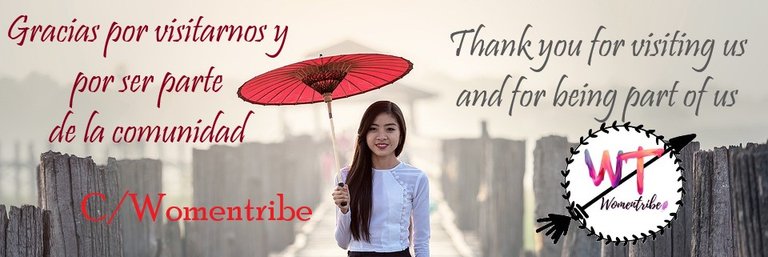¡No es debilidad, es miedo! -Esa emoción protectora- Reflexiones en Mujer Saludable (ES/EN)


Falta de energía, debilidad, fragilidad, ausencia de vigor, falta de resistencia, sensaciones de apego, flojera… Son tantas las definiciones que hablan de debilidad.
Y la Iniciativa de Mujer Saludable, sobre trabajar una debilidad con honestidad, nos ha permitido entender que detrás de cada una de estas definiciones está El Miedo.
¿Cómo gestionamos nuestra debilidad para salir adelante y hacer lo que tenemos que hacer?
¿Entendemos, acaso, que el miedo tiene muchísimos beneficios?


Sentir que no seguimos adelante
Cuando definimos debilidad, definimos una cualidad de falta de fuerza que también puede definir al carácter.
No solamente somos débiles para decidir, sino también para llevar a cabo una actividad, o cuando merman nuestros sentimientos ante una situación y nos hace débiles.
De lo expuesto en la iniciativa sobre las debilidades pude entender, que detrás de cada una de ellas existe el miedo.
Carlos Torres, @torrecoin90, definió un abanico de debilidades, como la procrastinación al retrasar nuestras actividades y deberes; y todos hemos vivido esto y tenemos que afrontarlo.
Nos da miedo enfrentarnos a una situación porque creemos que no la vamos a poder realizar o porque va a generar en nosotros emociones displacenteras.
Pero también, la falta de iniciativa, el no poder corregir hábitos ni la indisciplina y el no ser organizados; y detrás de todo esto existe miedo a dejar salir lo que somos y a reconocer nuestras fortalezas.

Pero hay más…
Por otro lado, @damelysh nos habló de la ira o las respuestas emocionales que nos impiden razonar ante los eventos, y esa falta de control emocional se transforma en una gran debilidad.
No esconde más que el miedo a quedar desnudos ante una situación en específico; de allí, la necesidad del autocontrol, pero también de entender que en nosotros el afrontamiento debe trabajarse.
Además, @cautiva-30, que también nos habló del aplazamiento de nuestras tareas y de nuestro desarrollo, nos relató directamente del miedo a descubrir nuestras capacidades y de aceptar las limitaciones que tenemos como las grandes debilidades.
Así que, si somos bastante objetivos, entenderemos que habría que comprender el miedo, porque nos paraliza y no nos permite continuar, ni desarrollarnos, para sentirnos plenos y felices.

El miedo como brújula
Todo ser vivo siente miedo, que es una de las grandes emociones primarias y básicas, porque tiene una función de adaptación.
No es que sea bueno o malo, sino que produce reacciones desagradables y nos invita a paralizarnos o a correr para preservarnos de algún peligro.
El hombre a través de su desarrollo ha utilizado el miedo como una brújula para saber dónde estar y dónde no.
Es un mecanismo de defensa para huir, atacar, o simplemente paralizarnos.
Lo cierto es que produce displacer y puede traer consecuencias terribles, como estrés, ansiedad y respuestas físicas como sudoración, hiperventilación y aumento de la actividad cardíaca, si este miedo se prolonga.
Y existen, en el mundo moderno, muchas situaciones que hacen que el miedo se prolongue, produciéndose estados patológicos delicados; pero en general, las consecuencias del miedo son preventivas.

Y muchos fantasmas
Muchas cosas que producen miedo no son peligrosas, pero las hemos adquirido a través de las concepciones que nos han conformado.
La mayoría de las veces tenemos miedo de cosas que no hemos realizado ni con las que nos hemos enfrentado.
Por eso, hay tanta gente con habilidades y conocimientos que son incapaces de transmitirlos o de crear emprendimientos que ayuden a otros a resolver problemas y que les permitan tener actividades de autosuficiencia.
Y, por otro lado, están los miedos condicionados o situaciones que nuestros padres y abuelos nos decían que eran malas y que, en otras épocas, por desconocimiento, se manejaron de esa manera.
De allí que el miedo sea la razón por la cual, muchas veces, no aceptamos diferencias sociales en nuestros entornos.
Y tenemos miedo a enfrentarnos con personas de sexualidad diferente o que piensan en forma diferente.
Es necesario que vamos revisando los miedos que nos impiden interrelacionarnos los unos a los otros y que nos impiden, también, desarrollar nuestras habilidades.

Controlarlo y aprovecharlo
Como vemos, nuestras debilidades hay que hablarlas, analizarlas, estudiarlas y encontrar el miedo que está detrás de cada una de ellas y de las dificultades para vencerlas.
Él nos puede dar el motivo o la problemática; por eso es necesario que identifiquemos la debilidad y el miedo y, si es posible, buscar ayuda para trabajarlo.
Hacer frente a las consecuencias físicas, controlando nuestra respiración, relajándonos y practicando al estar aquí y ahora; porque enfrentar el miedo o tolerar la razón que lo ocasiona, es una gran batalla ganada.
Debemos aceptar nuestros sentimientos y emociones, así como debemos aceptar los fracasos y las imposibilidades, porque de esto depende el trabajo que posteriormente realicemos para crecer.
Como resultado, nuestro pensamiento cambiará y nuestras perspectivas hacia la realidad van a ir cambiando.


It's not weakness, it's fear! -That protective emotion- Reflections in Healthy Women


Lack of energy, weakness, frailty, fragility, lack of vigor, lack of endurance, feelings of attachment, sluggishness... There are so many definitions that speak of weakness.
And the Healthy Woman Initiative, on working a weakness with honesty, has allowed us to understand that behind each of these definitions is Fear.
How do we manage our weakness to get ahead and do what we have to do?
Do we understand that fear has many benefits?


To feel that we are not moving forward
When we define weakness, we define a quality of lack of strength that can also define character.
We are not only weak to decide, but also to carry out an activity, or when our feelings are diminished in a situation and make us weak.
From what was exposed in the initiative about weaknesses I could understand that behind each of them there is fear.
Carlos Torres, @torrecoin90, defined a range of weaknesses, such as procrastination by delaying our activities and duties; and we have all experienced this and have to face it.
We are afraid to face a situation because we believe that we will not be able to do it or because it will generate unpleasant emotions in us.
But also, lack of initiative, not being able to correct habits or indiscipline and not being organized; and behind all this there is fear of letting out who we are and recognizing our strengths.

But there is more...
On the other hand, @damelysh spoke to us about anger or emotional responses that prevent us from reasoning in the face of events, and that lack of emotional control becomes a great weakness.
It hides nothing more than the fear of being naked in a specific situation; hence, the need for self-control, but also to understand that in us coping must be worked on.
In addition, @cautiva-30, who also spoke to us about postponing our tasks and our development, told us directly about the fear of discovering our capabilities and accepting the limitations we have as our greatest weaknesses.
So, if we are objective enough, we will understand that fear should be understood, because it paralyzes us and does not allow us to continue, nor to develop, to feel full and happy.

Fear as a compass
Every living being feels fear, which is one of the great primary and basic emotions, because it has an adaptive function.
It is not that it is good or bad, but that it produces unpleasant reactions and invites us to paralyze ourselves or to run to protect ourselves from danger.
Man throughout his development has used fear as a compass to know where to be and where not to be.
It is a defense mechanism to flee, attack, or simply paralyze us.
The truth is that it produces displeasure and can bring terrible consequences, such as stress, anxiety and physical responses such as sweating, hyperventilation and increased cardiac activity, if this fear is prolonged.
And there are, in the modern world, many situations that cause fear to be prolonged, producing delicate pathological states; but in general, the consequences of fear are preventive.

And many ghosts
Many things that produce fear are not dangerous, but we have acquired them through the conceptions that have shaped us.
Most of the time we are afraid of things that we have not realized or dealt with.
That is why there are so many people with skills and knowledge who are unable to pass them on or create ventures that help others solve problems and allow them to have self-sufficiency activities.
And, on the other hand, there are the conditioned fears or situations that our parents and grandparents told us were bad and that, in other times, due to lack of knowledge, were handled that way.
Hence, fear is the reason why, many times, we do not accept social differences in our environments.
And we are afraid to face people of different sexuality or who think differently.
It is necessary that we review the fears that prevent us from interacting with each other and that prevent us from developing our abilities.

Control it and take advantage of it
As we can see, our weaknesses must be talked about, analyzed, studied and the fear that is behind each one of them and the difficulties to overcome them must be found.
He can give us the reason or the problem; that is why it is necessary that we identify the weakness and the fear and, if possible, seek help to work on it.
To face the physical consequences, controlling our breathing, relaxing and practicing being here and now; because facing fear or tolerating the reason that causes it, is a great battle won.
We must accept our feelings and emotions, just as we must accept failures and impossibilities, because on this depends the work we will later do to grow.
As a result, our thinking will change and our perspectives towards reality will change.

Emilio Ríos – Venezuela
@emiliorios


Barras separadoras y logo de English, creadas y editadas en Paint.
Separator bars and English logo, created and edited in Paint.Cintillo personalizado de @emiliorios con el logo de #Hive, realizado por la excelente creadora @mosa71
Custom @emiliorios banner with the #Hive logo, made by the excellent content creator @mosa71Logo de Twitter tomado de la plataforma de la red social.
Twitter logo taken from the social network platform.Imagen de agradecimiento, tomando el logo de nuestra comunidad y editada en Paint, de:
Thank you image, taking our community logo and edited in Paint, by:
Pixabay-SasintSi lo deseas, puedes seguirnos en:
If you wish, you can follow us at:




@emiliorios, muchas gracias por la invitación y por tenerme en cuenta en tu post. Espero poder participar en esta iniciativa y ser de ayuda en la retroalimentación y crecimiento de la comunidad.
Muchas gracias a tí @torrecoin90
Muchas gracias estimado @emiliorios por la mención y por traerenos esas increibles iniciativas, saludos y feliz tarde del sábado.
Gracias @cautiva-30
Hola amigo @emiliorios, en lo particular me gusta este tipo de post que como una especie de catálogo hace alución a las diferentes artistas de un mismo tema o iniciativa porque fa fe de quién hace el resumen tuvo contacto con las publicaciones. Y se apoya en estás para crear su propio discurso.
Y aunque no he participado , de otras fuentes he conocido que el miedo , cual quier tipo de miedo , es simplemente miedo a la muerte también en sus múltiples escenarios. Es el miedo al fin siempre de algo.yasea bueno o malo, positivo o negativo .
Horita ley a @jrobe y ahora a ti , y aunque me he alejado de los temas a propósito ,creo que son escritos muy buenos y estimulante.
Saludos y éxitos.
Muchas gracias @davidsantafe
Saludos.
Felicitaciones!
Gracias por deleitarnos con tan magnífica publicación, la cual fue valorada por @Womentribe una comunidad para destacar el valioso potencial del ser humano.
*Sigue nuestras cuentas:
@Womentribe
suscribete aquí @colmena-139925
twitter
Instagram
Muchas gracias equipo de @womentribe
El miedo genera dos reacciones, o nos paraliza o nos moviliza para buscar estar mejor. Son pocos los que reaccionan de la segunda manera cuando se trata de cosas que no implican la pérdida de la vida, y se quedan paralizados y el tiempo se les pasa en vano.
Quienes deciden enfrentarlo son los que terminan ganando la batalla.
Excelente post.
Muchas gracias @mamaemigrante
Así es, ganan los que afrontan.
Saludos amigos de la comunidad, estimado @emiliorios, gracias por traernos el tema a reflexionar, a continuación mi aporte:
https://peakd.com/hive-139925/@cautiva-30/mi-experiencia-para-enfrentar-mis-miedos-or-my-experience-in-facing-my-fears
Muchas gracias amiga @cautiva-30